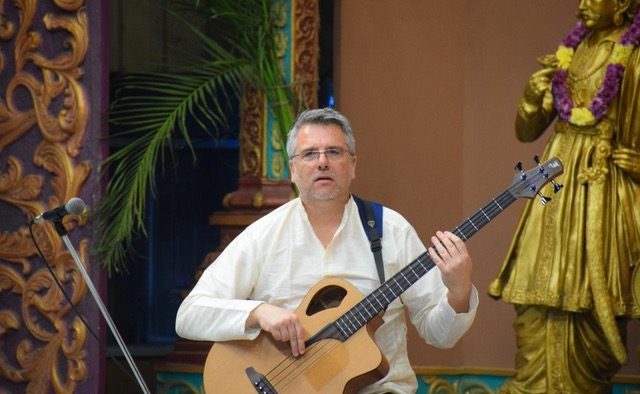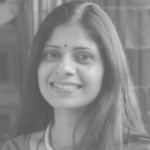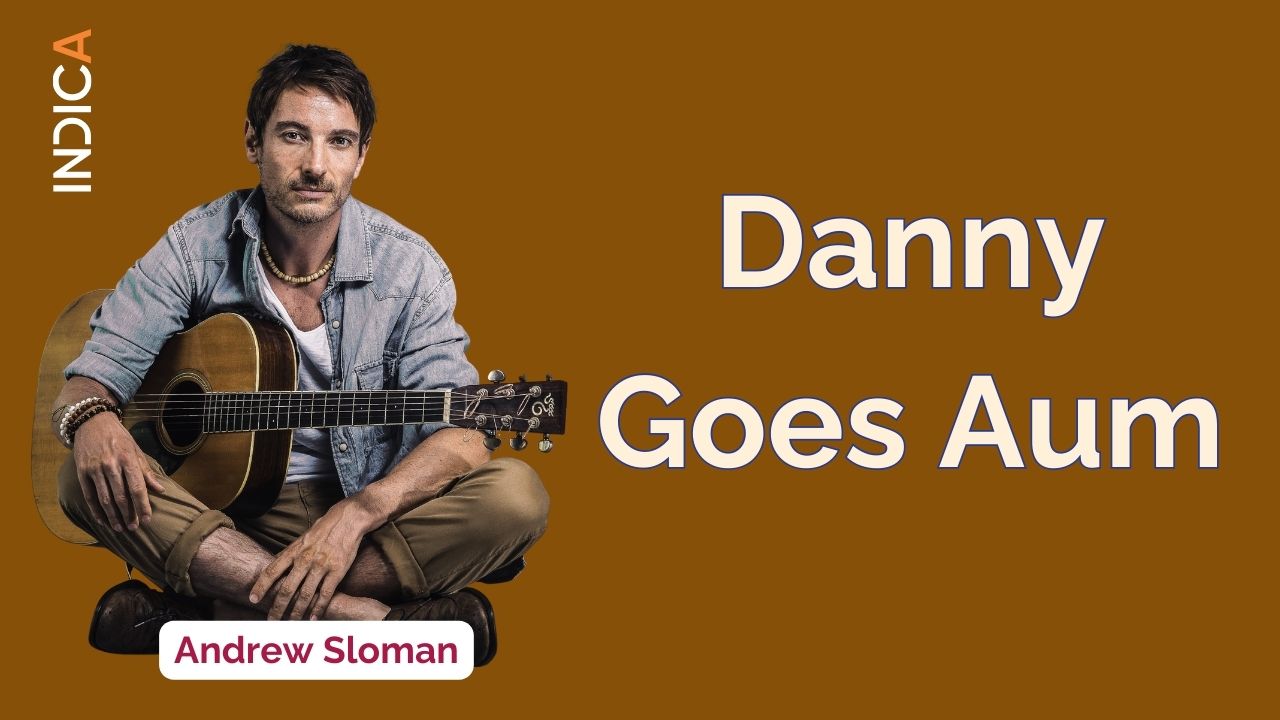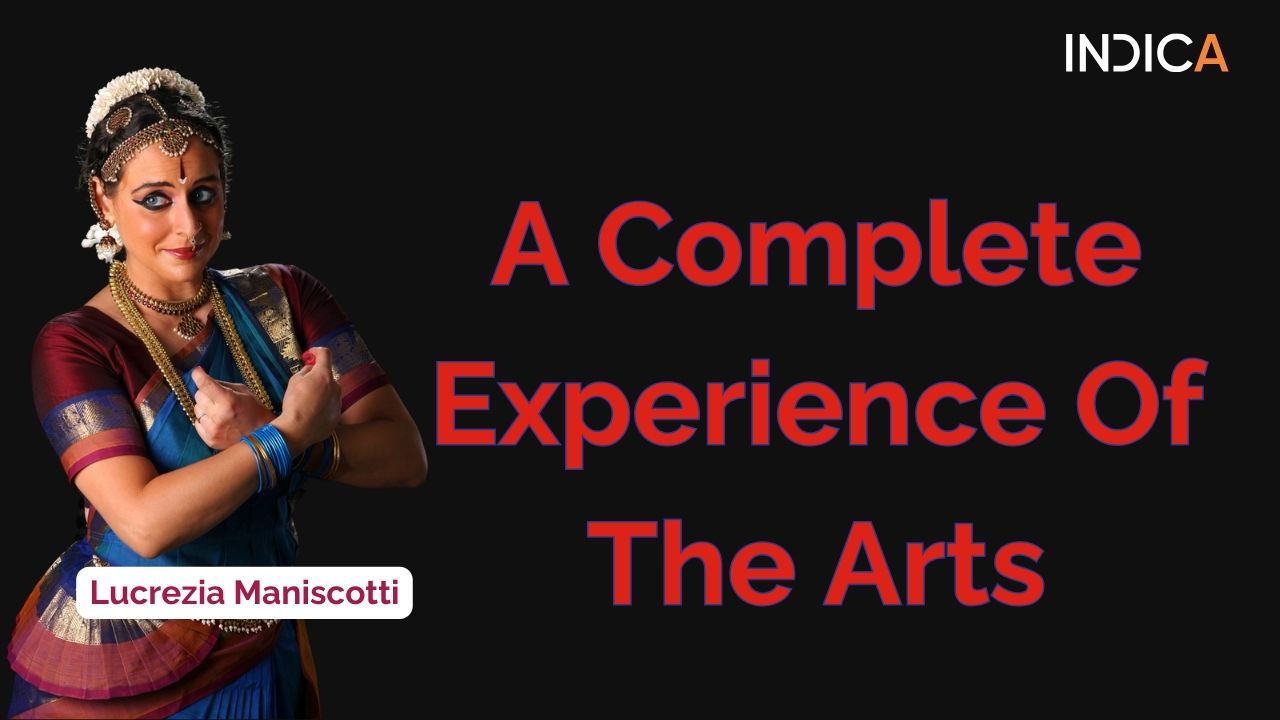Nandi is a band based in Lille, France, but which travels back and forth through the Indian music soundscape. Pascal Lovergne on the acoustic bass is one of the glues which holds this Indo-European band comprising him, Ghatam Suresh Vaidyanathan and pianist Stefan Orins. Suresh Vaidyanathan is a master percussionist who has earlier played on records by Paul Simon.
All three musicians, in command of their individual instruments, bends and accommodates the other, sometimes by muting their own. Pascal has learnt Konnakol from Suresh Vaidyanathan, and is not averse to a musical challenge.
Pascal has turned vegetarian, wore a dhoti for the first time this season, recites Konnakol and is at home at Mylapore as he is in France.
In this interview with CSP, Pascal talks about the various influences which brought him to Mylapore including the Nandi album which has compositions like ‘Eka – Aneka’ and ‘Paruppu Podi’.
How did your interest in Indian music begin?
My interest in Indian music started long time ago, listening to The Beatles, Mahavishnu orchestra and later John Mc Laughlin trio with Trilok Gurtu. I later got more curious about the rhythms aspects of Carnatic music which led to studying konnokol with Ghatam Suresh Vaidyanathan.
What is it that the acoustic bass guitar can do well in Carnatic notes, in so far as the gliding notes are concerned. Is that even relevant?
The acoustic bass I play is fretted and all I can get is left hand articulations and slurs. I don’t try to play like a Carnatic musician plays but being here for music season regularly, listening to so many concerts, playing with Suresh and Amit Nadig and other Carnatic musicians and singers has certainly influenced my articulations and phrasing. Also the tone of the acoustic bass guitar blends nicely with the Ghatam and other percussions.
Is the bass guitar primarily to be considered an accompaniment? We however noticed in your band that there is no lead guitar, so what is the role the bass guitar plays in Nandi?
In a lot of music the bass is supposed to accompany and keep the groove and the bottom end of the spectrum.
In jazz however it is supposed to solo and improvise as any other instrument. In Nandi I try to be free whenever I can. I have space for solos, melodies but I like to hold solid grooves and baselines too when the music calls for that. Everyone is given the space he needs for expressing himself.
Was Konnakkol an entry point into Carnatic music or was there any other entry point?
It was indeed. In fact I started studying with Suresh and at first I was really just interested in learning this craft.
He suggested me to try to make music with it, to try applying it to the bass…. A whole world of rhythmic and melodic (not to mention harmonic) possibilities opened up. Suresh being the brilliant master he is was always patient about answering questions and providing me with food for thought. So whatever I can I grasp from Carnatic music but it’s such a huge tradition ….
The other entry point has been playing and composing with Suresh, whatever questions I have about Carnatic music he is always there to answer.
What are your thoughts on the Ghatam as a percussion instrument?
It’s beautiful, especially in the hands of Suresh. There is a whole universe of sounds in this claypot. It’s all there, bass, treble, everything in between. On the new Nandi cd Ghatam is the only percussion instrument featured (except for konnakol) and it sounds really great.
Suresh was talking about your sadhana or practice regime. What inspired you to work so hard in getting a grip of Konnakkol.
A lot of respect for that deep tradition….This is what inspired me to look for a master. At first I discovered konnokol when teaching a rhythm class for non-drummers. I studied with whatever material was available (John Mc Laughlin’s gateway to rhythm dvd) and it was a revelation. Then I found Suresh, I had classes on Skype at first and came to Chennai six years ago. I remember the first class in Chennai, the profound voice of Suresh’s resonating … Next year I was onstage with Suresh’s M’rittika during the music season, in Krishna Ghana Sabha which was beyond my early expectations …. Then came Nandi…. Which involved a lot practice too…
Suresh revealed to me the live aspect of konnokol, something you can’t experience from the books.
What does Konnakkol mean to you musically? How does it help with your other music?
Konnakol is the universal rhythm language. It is a wonderful tool for understanding, practicing and being creative with rhythm. I think it should be part of every music curriculum. I have been teaching classes and workshops here in France, sometimes with Suresh. I try to promote it as much as I can.
Along with Yannick Hervé in France we used it as a tool in hospital, leading to recording «le rythme des maux» with teens suffering from anorexia and depression. Konnakol is really something that helps people get connected to the rhythm of life.
Do you think recorded music can make a comeback if so in what way?
Definitely. I think it is so important to record and produce music properly. Each Nandi repertoire started with recording, we could not play the music on stage before recording. It’s a big challenge but I believe in the studio as a creative place. I tend to be very careful about releasing nicely produced material, video or audio. Our live Mylapore concert has been broadcast worldwide and our first CD got very positive reviews, getting the ‘Revelation’ label in French Jazz Magazine. I really believe there is a need for quality production in these times of YouTube, self-made iPhone contents.
Are the audiences for jazz and Carnatic music similar?
I don’t think so, but I am convinced that anybody can be sensitive to good music even where differences in culture exist. What amazes me in Carnatic audiences is their level of comprehension of the intricacies of the music ….
How is the piano-bass-drums combination played out in the keyboard-bass-ghatam combination? How is it different sounding?
The piano/bass/drums is a tried and true format in jazz. Playing with Ghatam is so different from the drum kit, it’s a different flow, another voice. Playing our mix of jazz and carnatic music is not usual to this format. We try to mix intricacies with aesthetics and keep the poetry and beauty of each culture intact…
Do you like wearing Indian clothes and Indian cuisine? What are your favourites?
Yes, kurtas dothi (for the first time this year….). About South Indian cuisine ….what can I say? I just love it…I became a vegetarian after my first trip here ….idly, dosa,v ada, biriyani and paruppu podi ….not to mention poori…payassam, gulab jamun ….South Indian delights…I just can’t get enough.





